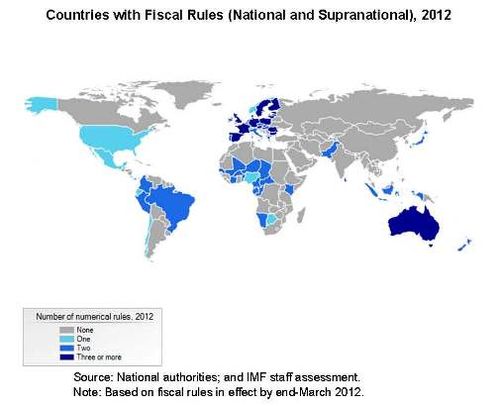Posted by Andrea Schaechter

Strengthening fiscal frameworks, in particular fiscal rules, has emerged as a key response to the fiscal legacy of the global economic crisis. Fiscal rules are defined as long-lasting constraints on key budgetary aggregates through numerical limits on deficits, debt, expenditures, or revenue. A new IMF working paper
The dataset and Working Paper can be found at: http://www.imf.org/external/datamapper/FiscalRules/map/map.htm
Three key findings emerge from the new IMF study. First, many countries have adopted new fiscal rules or strengthened existing ones in response to the crisis. With public finances in distress in many economies, adopting fiscal rules can help bridge the transition to lower deficits while enhancing the credibility of consolidation plans. Second, the number of fiscal rules and the comprehensiveness of the design features in emerging economies has caught up to those in advanced economies. This is confirmed by the paper’s summary indices of fiscal rules. And third, the “next-generation” fiscal rules is increasingly complex as they combine the objectives of sustainability and with the need for flexibility in response to shocks, thereby also creating new challenges for communication, implementation, and monitoring. Fiscal councils can play an important role in tackling these new challenges.
[1] Schaechter, Kinda, Budina, Weber (2012) “Fiscal Rules in Response to the Crisis—Toward the ‘Next-Generation’ Rules. A New Dataset,” IMF Working Paper (Washington, DC: International Monetary Fund).
Note: The posts on the IMF PFM Blog should not be reported as representing the views of the IMF. The views expressed are those of the authors and do not necessarily represent those of the IMF or IMF policy.





